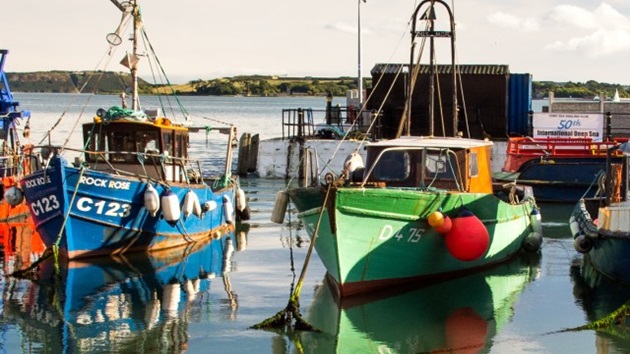The Marine Stewardship Council Highlights Sustainability and Protecting the Ocean’s #bigbluefuture.
55% of Canada’s wild-harvested seafood is MSC certified sustainable.
TORONTO, October 1, 2021 - Love seafood but a little confused about what kinds of fish are sustainable – and how to know for sure that the “wild caught” seafood you see on a menu or in the grocery store has been fished responsibly?
October is Seafood Month. In Canada, the Marine Stewardship Council (MSC) – a non-profit seafood certification program dedicated to keeping our ocean and fish stocks healthy – reports that North Americans purchased almost 50% more certified sustainable seafood over the past year.
And that’s a good thing for our planet, since environmental experts report the ocean absorbs 93% of the heat accumulated in the earth’s atmosphere – and healthy, thriving oceans and fisheries are a critical part of maintaining the earths’ delicate climate balance.
More Canadians are Making the Switch to Sustainable Seafood
According to MSC Canada Program Director Kurtis Hayne, “55% of seafood harvested in Canada is MSC certified sustainable, compared to the global average of 14%.” Hayne says that last year, Canadians purchased over CDN $300 million of certified sustainable seafood bearing the MSC blue fish label. That amount almost doubled in the last three years – and research shows a 250% increase in consumer awareness of the MSC blue fish label since 2016.
Look for the MSC Blue Fish Label
“More and more Canadians are looking for the MSC blue fish certified sustainable symbol when they purchase wild caught seafood, which is a powerful way to support sustainable fishing in Canada and globally — and contribute to ocean health on an ongoing basis,” he says.
The role of Blue Foods in Providing Sustainable Protein
Hayne points to a recent landmark scientific report from the Blue Food Assessment estimating that the world’s population will demand twice as much seafood and aquatic food by 2050, as ongoing evidence of the urgent need to fish and shop sustainably. The MSC estimates that, although more than 10 million tonnes of seafood comes from MSC certified sustainable fisheries, the UN FAO reports more than one-third (34%) of the world’s fish stocks are overfished. According to MSC data, if the world’s oceans were fished sustainably, the planet could provide sustainable protein for 72 million more people.
In Canada, 32 fisheries currently meet the MSC standard for sustainable fishing practises, producing what qualifies as “blue foods” that contribute to healthy fish stocks, reducing ecosystem impacts including bycatch, and marine biodiversity in Canada’s lakes and oceans. Hayne says this achievement represents an immense collective of people working behind the scenes at every level of the seafood industry to promote and highlight the importance of sustainable seafood.
MSC’s Sustainability Focus
In 2021 and beyond, Hayne confirms that the MSC has identified the following areas requiring further focus and cross-sector collaboration to support ongoing conservation and sustainability efforts:
Climate change: Better understanding and mitigating its impacts on fisheries
Continued investment: All actors involved in seafood have a role to play; solid science to underpin the sustainable management of fisheries is crucial
Measurement and evaluation: The programs and plans proposed as solutions must be able to deliver credible, meaningful results
Food Security: Accelerate the sustainable production of blue foods to meet the needs of a growing global population


